Georgian Easter: food, rituals and traditions
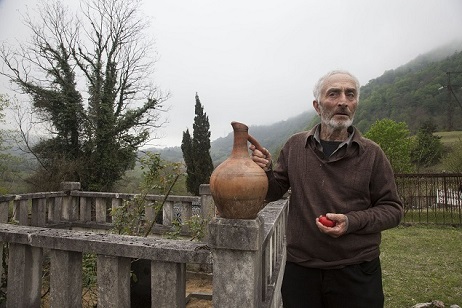

In a tiny mountainous village of Partskhnali in Western Georgia, long-term resident Elguja Kharadze could not sleep a wink last night.
Kharadze, who has spent all life in the village, got up bright and early this morning and began final preparations for today. Today is a big deal for him.
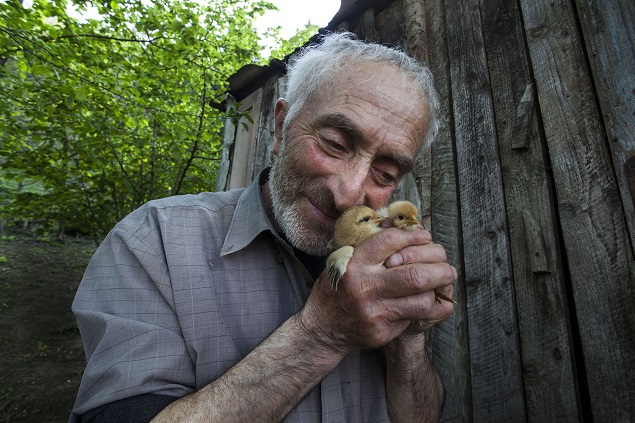
Elguja Kharadze lives in his native village while all of his three children have moved to a city. Photo by N. Alavidze
Kharadze and his wife Natalia live alone in Partskhnali. All three of their children have moved to the city but today, they will all return home for a special visit.
Why? It is Easter.
Kharadze will say "Christ is Risen!” to every single person he meets today, to which they will undoubtedly respond: "Indeed He is Risen.” And then they will crack red hard boiled eggs.
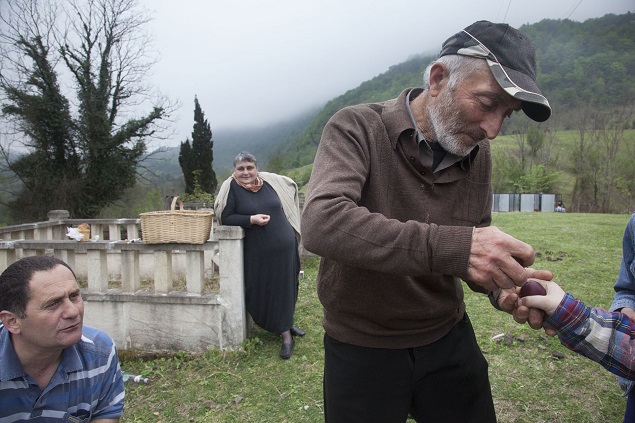
The winner of the egg cracking "championship is the one who ends up with the last unbroken egg. Photo by N. Alavidze
Orthodox Christians around the globe and in Georgia consider Easter to be the most significant day in the religious calendar. Preparations for the occasion begin months in advance.
Some religious Georgians fast for 40 days prior to Easter - Kharadze’s wife Natalia is one of them. For about two months prior to Easter, she can not eat meat, fish, dairy products or eggs.
On Easter eve, Natalia boils a chicken, cooks Khachapuri - Georgian cheese-filled bread, and bakes Paska – a hill-shaped traditional sweet Easter bread symbolizing Golgotha, the site where Jesus was crucified.
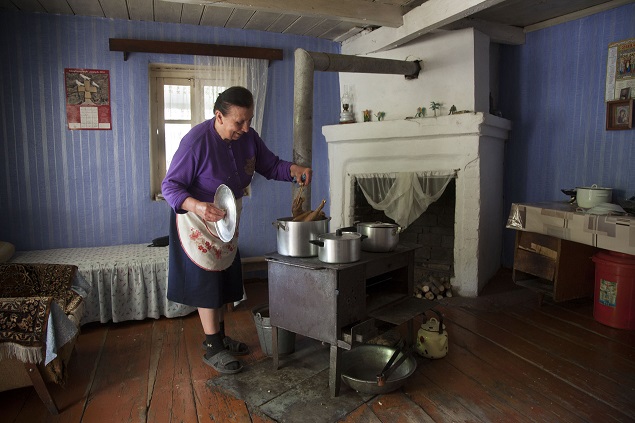
Kharadze's wife, Natalia, fasts for 40 days before Easter so she eats no meat, fish, milk products or egg during this period. Photo by N. Alavidze
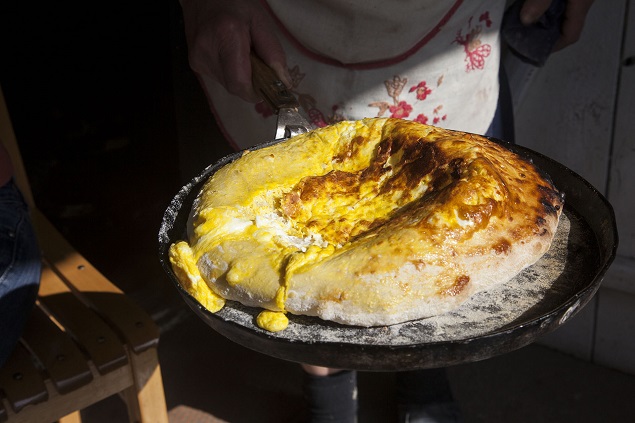
This is Khachapuri, Georgian cheese-filled bread baked by Natalia. Photo by N. Alavidze
Eggs are dyed red on Good Friday of the Passion Week. This tradition is connected with the Crucifixion, lamentation and burial of Jesus Christ.
As legend says, after the Ascension of Jesus, Mary Magdalene's went to the Emperor of Rome and greeted him with "Christ has risen," whereupon he pointed to an egg on his table and stated, "Christ has no more risen than that egg is red." After making this statement it is said the egg immediately turned blood red.
The Kharadzes’ Easter eggs are blood red too. Every year, the man of the household begins gathering eggs for Easter in January. He then selects the strongest eggs by slightly rapping them on his teeth – those making the clearest noise are the strongest.
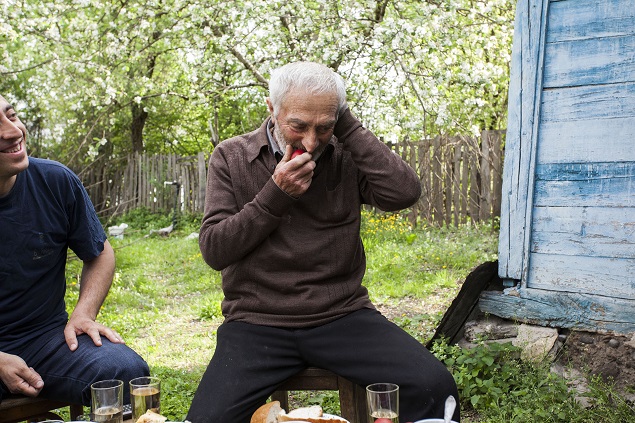
Kharadze slightly raps eggs on his teeth – those making the clearest noise are the strongest. Photo by N. Alavidze
When an egg cracking moment arrives, Kharadze is usually the best - he ends up with the last unbroken egg every Easter.
He cannot wait to see how strong his favorite eggs will turn out to be this year.
On Saturday night, the day before Easter Sunday, the most devout Orthodox Christians go to church and stay there overnight until late Easter morning. A special service is conducted in almost every church across the country. Following this people have a special meal to break the fast.
The Kharadzes stayed at home last night as there was a lot to do before the most exciting day of the year, and plenty to prepare before their guests arrive.
Easter morning begins with a social affair where neighbours greet and congratulate each other. After this comes the most traditional part of the holiday – visiting cemeteries.
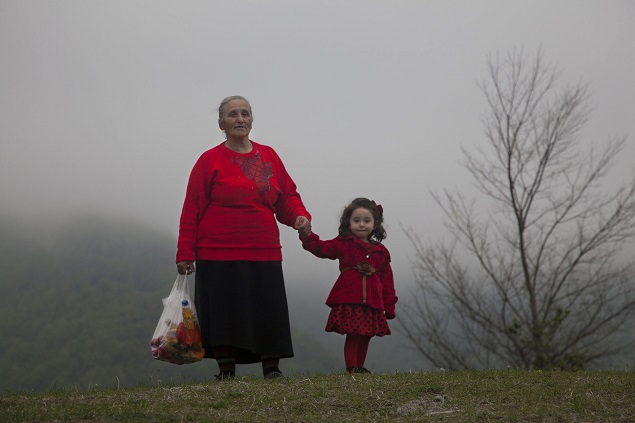
Georgians bring food and wine to cemeteries and feast near the graves of their loved ones. Photo by N. Alavidze
Every Easter Georgians bring food and wine to cemeteries and feast near the graves of their loved ones. This is the way of telling their ancestors Jesus has risen.
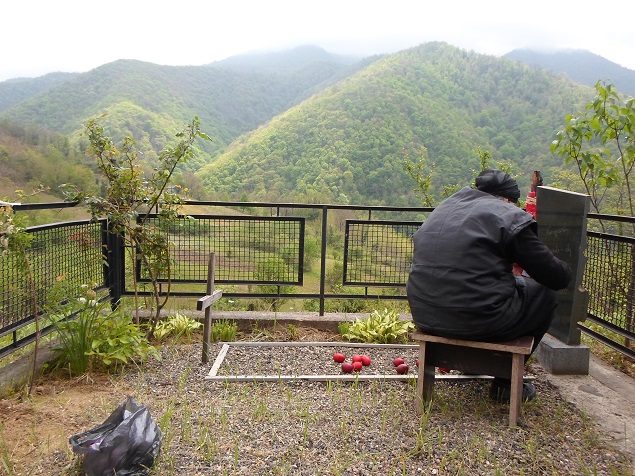
Every Easter Georgians visit cemeteries and roll red eggs on the graves of their loved ones.
At small Georgian villages like Partskhnali, everyone knows each other and almost all of the residents are distant relatives. So people visit each grave at the cemetery one by one, and drink a glass of wine and roll a red egg on each grave.
This is where traditional egg fights begin.
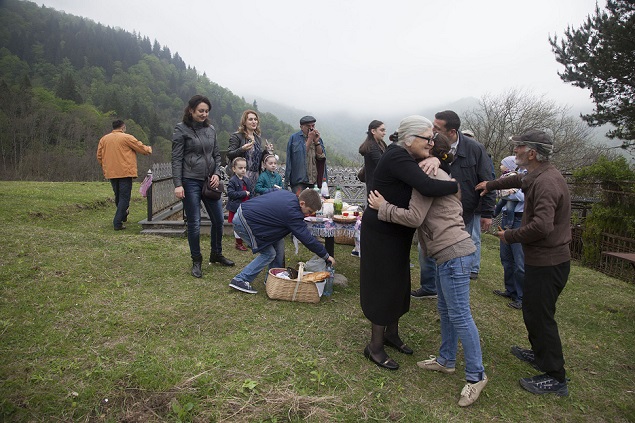
In small Georgian villages almost everyone are distant relatives and they celebrate Easter together. Photo by N. Alavidze
Kharadze’s Easter egg has proven its strengh. The man was just about to start enjoying his victory when his daughter-in-law asked to crack an egg. This time his luck had run out and his egg broke.
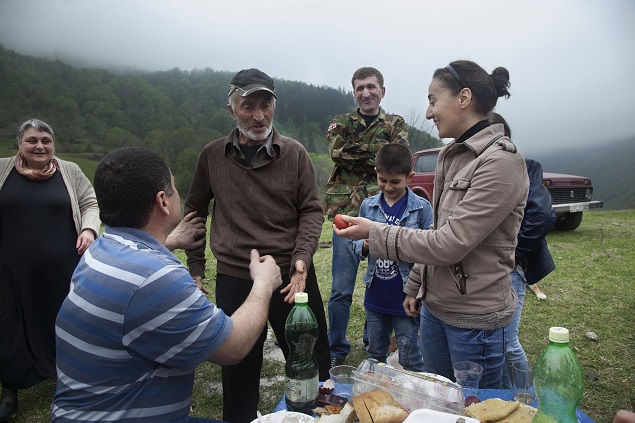
Kharadze was challenged by his daugthter-in-law. Photo by N. Alavidze
Everyone looked amused but not Kharadze. Winning an egg cracking "championship” is very, very important to him.
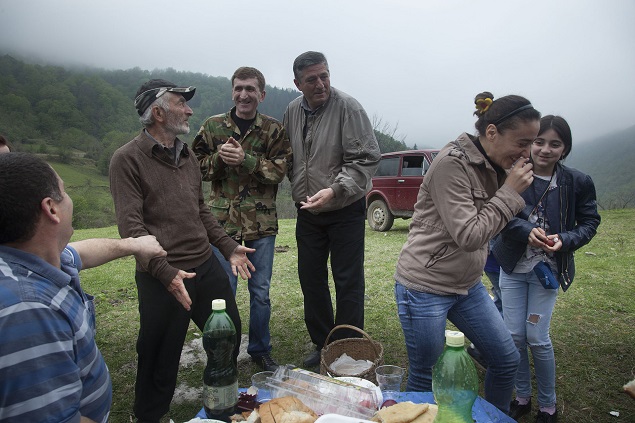
The man looked disappointed when his egg broke. Others found it amusing. Photo by N. Alavidze
The Easter celebration is not finished yet - this is only the start. The next phase is ahead at home, where a feast awaits the family. The table is set full of delicious traditional Georgian dishes waiting for the guests to get back from the cemetery.
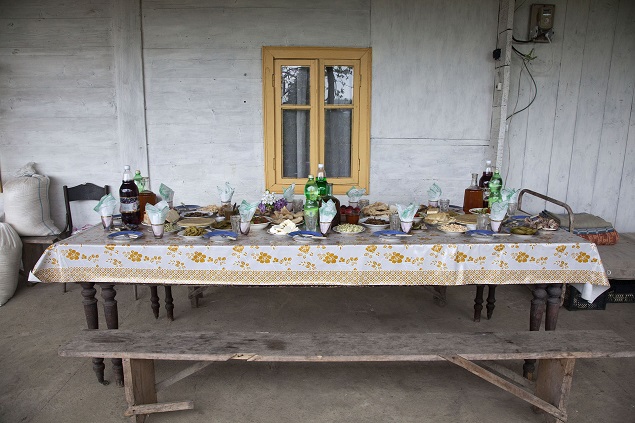
The table is set full of delicious traditional Georgian dishes waiting for guests at the Kharadzes'. Photo by N. Alavidze
 Tweet
Tweet  Share
Share